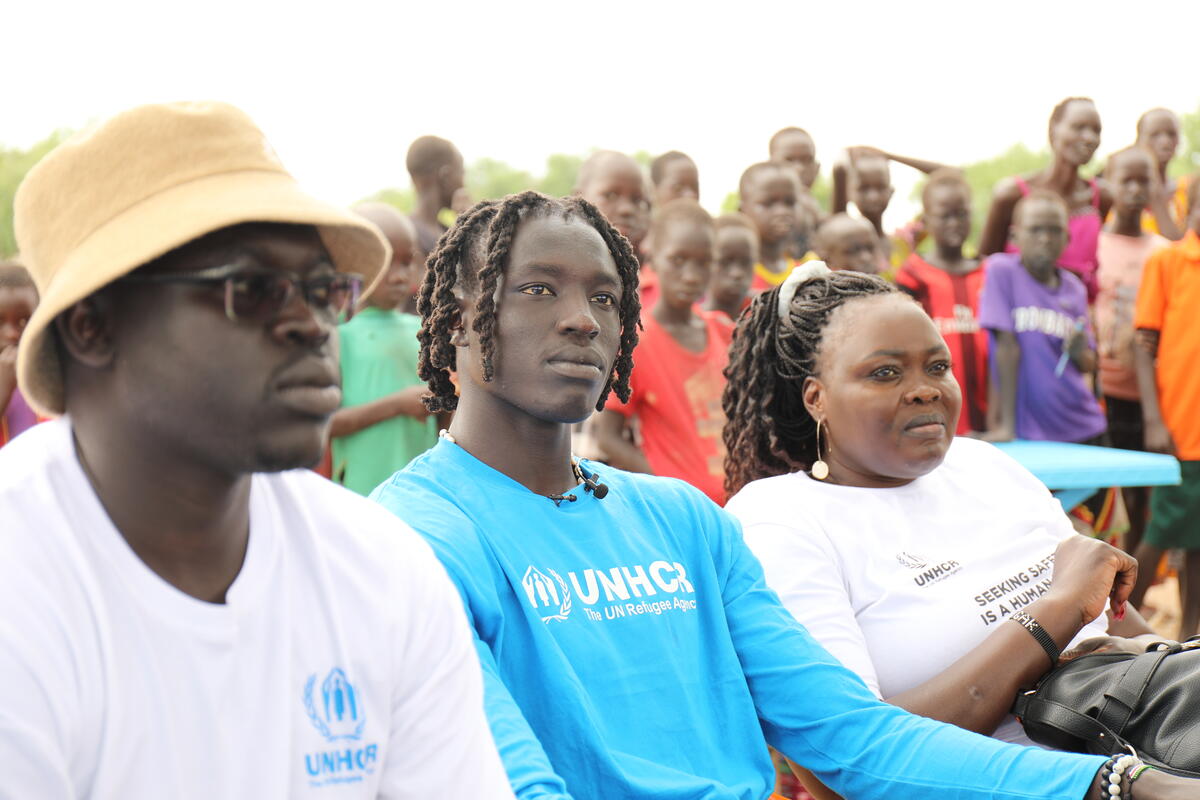Timor Emergency Update
Timor Emergency Update
West Timor
UNHCR is planning to airlift emergency relief aid for thousands of displaced people from East Timor living in appalling conditions in West Timor. Aircraft carrying plastic sheeting, water containers, blankets and mats will fly from Darwin, where UNHCR has been building up supplies for both East and West Timor.
A UNHCR logistics team is now in the West Timor capital of Kupang to draw up tentative plans for the airlift.
At the same time, UNHCR is also making tentative plans for the repatriation of Timorese who have expressed a desire to return home to Dili. The timing of the airlift is unknown.
In visits Thursday, 30 September, to five camps in the Kupang area, most people told UNHCR that they want to repatriate, reinforcing statements by local officials that up to 60 percent of the 230,000 displaced people now in West Timor want to return to East Timor.
Four of the five camps UNHCR visited - Gor and Koni sports centres, Noel Baki and Naibonat - have a combined population of about 5,300 and appeared to be well organized. But at Tua Pukan most of the 30,000 people are without shelter. There is little water and food at Tua Pukan, although some rations were distributed on Thursday by the local Red Cross. The people of Tua Pukan include dependents of militia and military as well as pro-independence Timorese who came from makeshift camps in the Atambua area near the border with East Timor.
A UNHCR staff member who travelled to Atambua on Wednesday and Thursday reported that more than 130,000 displaced are scattered in the area and that many of them are without shelter. The government is constructing barracks at Atambua town to house 6,000 people now living in 21 schools to allow students to begin classes. The staff member visited six sites in all. In three of these sites, people have been living in the open for weeks.
East Timor
While Dili is much calmer, the security situation elsewhere in East Timor continues to be precarious. On Thursday in the town of Com, Gurkha peace-keeping troops escorting an inter-agency relief convoy arrested several suspected militia members and freed 3,000 East Timorese rounded up at the port for deportation.
In addition to Thursday's overflight of western portions of East Timor, when a UNHCR staff member counted only a half-dozen villages still intact and saw militia running from burning houses and churches, there are reports of two other towns along the border, Ballabo and Bellagda, being set to the torch. Militia activity is concentrated in the western areas and is still a threat to Timorese civilians.
The first rain of the season fell Friday in Dili. While the population awaits the season with anticipation, the rains worry humanitarian workers as it heightens the risk of communicable diseases. Sanitation, shelter and access to areas beyond the island's paved road network are also concerns.
A working group on shelter, including UNHCR, ICRC, and 9 NGOs, has been formed in Dili. The group is planning a first phase beginning in 10 days when plastic sheeting will be distributed to the needy. This will depend on the resupply of stockpiles, as much is already being doled out. The second phase would see the distribution of 'kits' of wood, corrugated metal and other supplies.
The first general distribution of food in Dili is to take place next Monday, 4 October.
Two more UNHCR staff are set to arrive in Dili on Saturday, 2 October.









